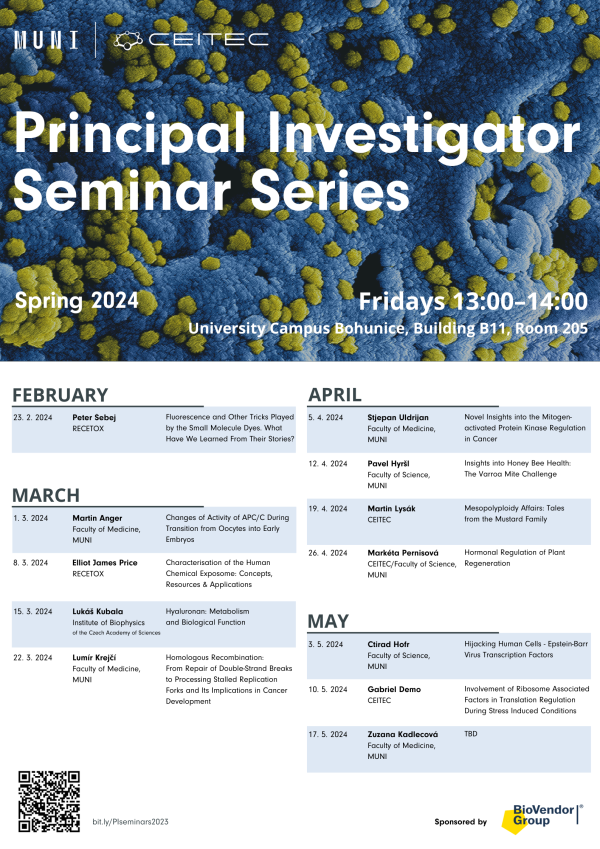About event
If you would like to participate online, please contact us at events@ceitec.muni.cz. Online participation is not possible on a one-time basis. It is intended for students whose health and other conditions prevent them from attending on-site during the semester.
The Group of Comparative Immunology focuses on studying the immune reactions of insects and monitoring the signalling pathways involved in their regulation, the function of individual genes, and differences in response to various stimuli, such as bacterial infection or parasitism. The honey bee's immune system, like that of other insect species, is composed of both humoral and cellular components. However, honey bees also possess a social immune system, which incorporates complex behavioural patterns within the colony, leading to a more efficient immune response.
The group's focus is on studying honey bee longevity and differences between short-living and long-living generations in the hive. Special attention is given to parasitism by Varroa mites and associated infections, which are significant factors in the loss of bee colonies during overwintering. A comprehensive review of changes in the examined bees was made possible using the so-called OMICs approach, i.e., an assessment of overall changes in gene activity and the spectrum of proteins and other metabolites using modern high-capacity methods. The results of these analyses provide an overview of molecular changes in the bodies of parasitized bees that cause deterioration in health and, subsequently, the death of bee colonies.




